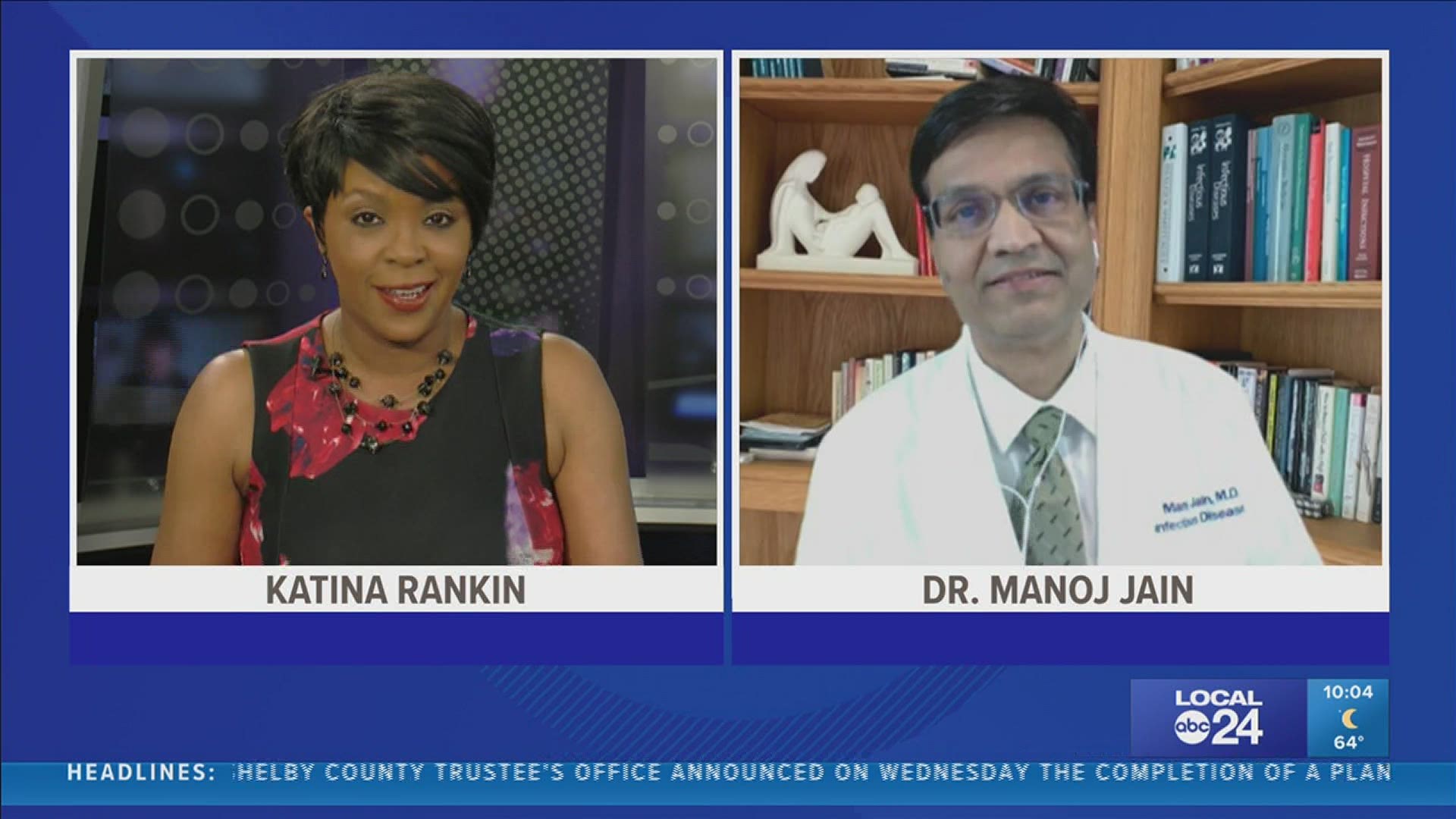MEMPHIS, Tennessee — While scores of Americans are getting COVID-19 vaccinations every day, many still have questions about the vaccines. Local 24 News anchor Katina Rankin goes one-on-one with Dr. Manoj Jain to answer COVID-19 vaccine questions.
Here is a brief bio of Dr. Jain, as it appears on his website:
"Manoj Jain, MD MPH is an infectious disease physician, a writer, and a national leader in healthcare quality improvement.
He received his engineering, doctorate, and public health degree from Boston University. He did his residency, fellow and executive public health training at Boston City Hospital, New England Medical Center, Tufts University and Harvard School of Public Health, respectively. He has served as a consultant to the World Bank on HIV, and has been interviewed by CNN and National Public Radio. Over the past 15 years Dr. Jain has given over a 150 talks, and published numerous scientific articles, chapters and books. Dr. Jain has conducted research on HIV epidemiology, quality improvement, and spirituality & meditation.
Presently, Dr. Jain is an Infectious disease consultant at Baptist Memorial Hospital and Methodist Hospitals in Memphis. He is also a clinical Associate Professor at University of Tennessee, Memphis and Rollins School of Public Health at Emory University in Atlanta."
According to the Centers for Disease Control and Prevention,
- COVID-19 vaccines are safe and effective.
- CDC recommends you get a COVID-19 vaccine as soon as you are eligible.
- People who have been fully vaccinated can start to do some things that they had stopped doing because of the pandemic.
The CDC says, "After getting vaccinated, you might have some side effects, which are normal signs that your body is building protection. Common side effects are pain, redness, and swelling in the arm where you received the shot, as well as tiredness, headache, muscle pain, chills, fever, and nausea throughout the rest of the body. These side effects could affect your ability to do daily activities, but they should go away in a few days. Learn more about what to expect after getting a COVID-19 vaccine.
The number of doses needed depends on which vaccine you receive. To get the most protection:
- Two Pfizer-BioNTech vaccine doses should be given 3 weeks (21 days) apart.
- Two Moderna vaccine doses should be given 1 month (28 days) apart.
- Johnson & Johnsons Jansen (J&J/Janssen) COVID-19 vaccine requires only one dose.
If you receive a vaccine that requires two doses, you should get your second shot as close to the recommended interval as possible. However, your second dose may be given up to 6 weeks (42 days) after the first dose, if necessary.. You should not get the second dose earlier than the recommended interval."

